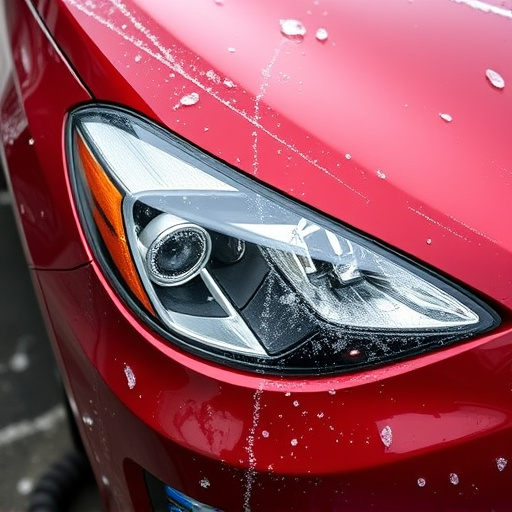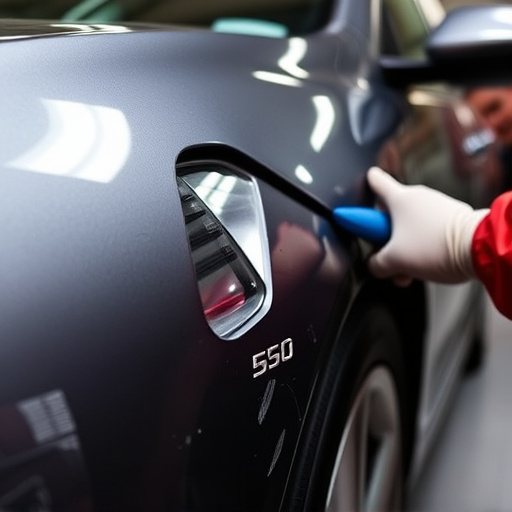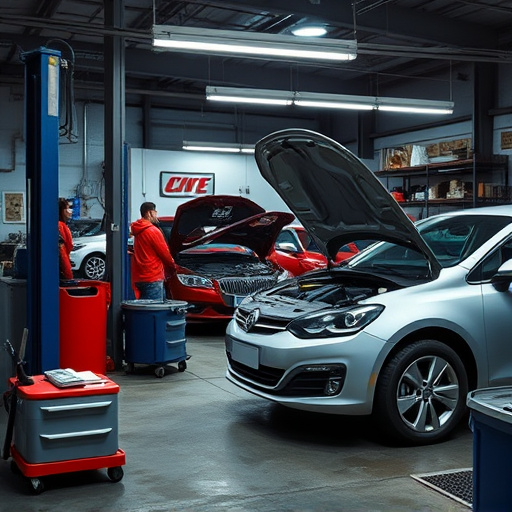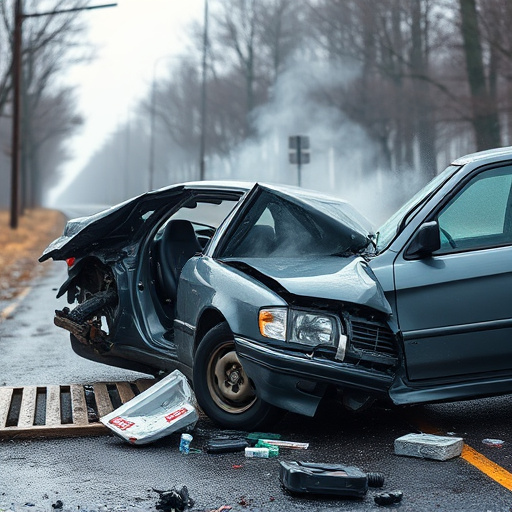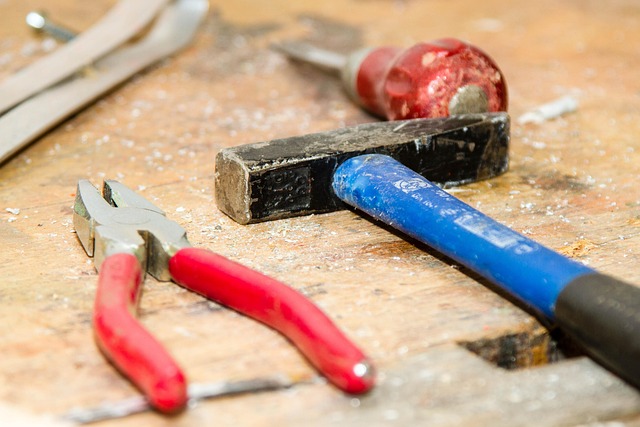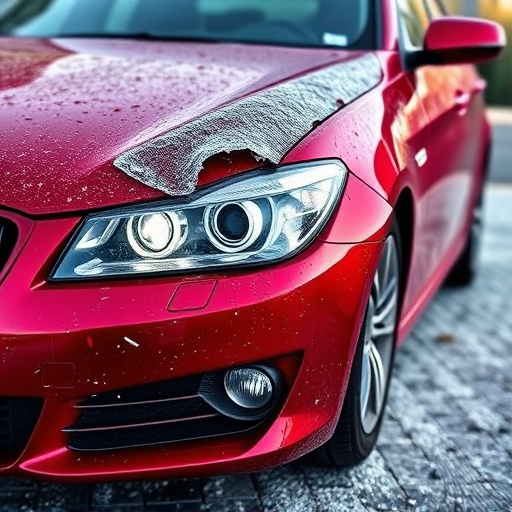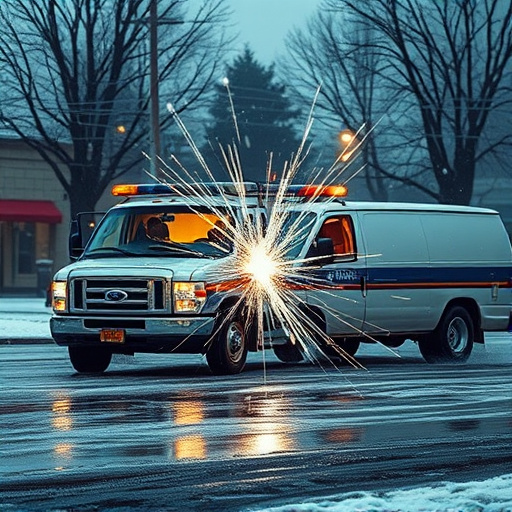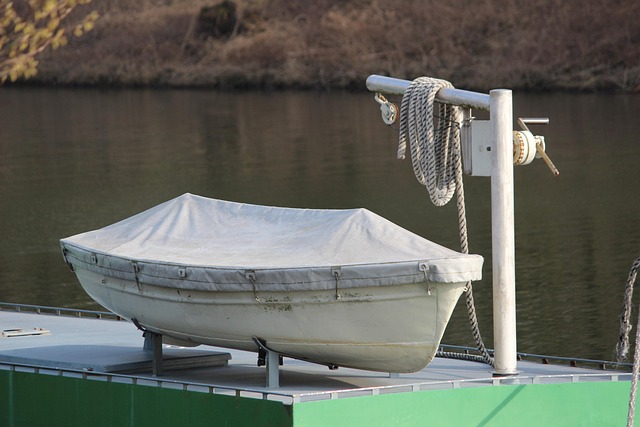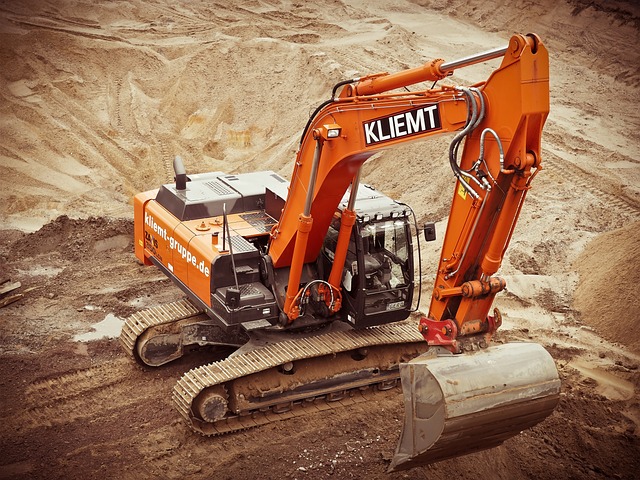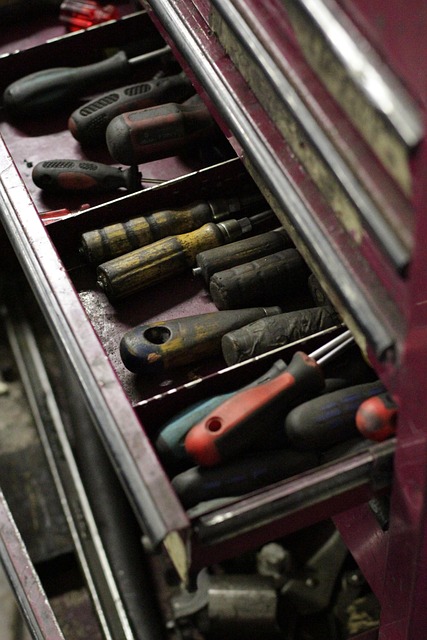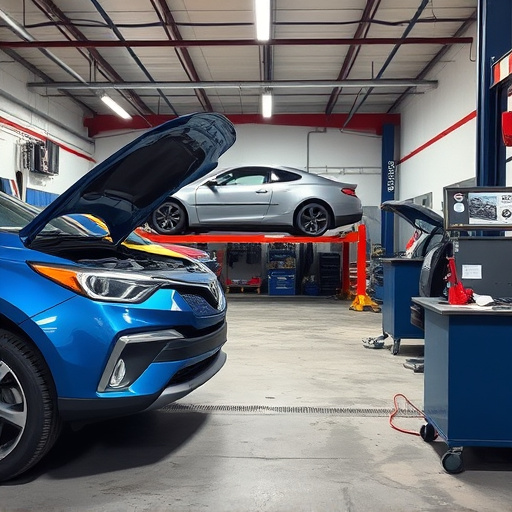Rare car collision specialists face unique challenges repairing specialized vehicles with limited parts availability. They require advanced skills in auto frame repair and dent removal to preserve historic design elements, diagnosing complex issues, sourcing specialty parts, and performing precise repairs with minimal alteration. These centers prioritize controlled environmental conditions and integrate sustainable practices, using eco-friendly materials and minimizing waste, to meet stringent standards and appeal to environmentally conscious consumers.
In the niche realm of automotive repair, rare car collision specialists face distinct challenges. Their specialized knowledge extends beyond standard vehicles, demanding intricate handling of unique components and materials. This article delves into the critical environmental controls these facilities employ, addressing specific needs that go beyond conventional collision centers. From sustainable practices to tailored solutions, we explore how rare car collision specialists navigate their complex landscape, ensuring both optimal repairs and ecological stewardship.
- Understanding the Unique Challenges of Rare Car Collision Repair
- Essential Environmental Controls for Specialized Facilities
- Implementing Sustainable Practices in Rare Car Collision Centers
Understanding the Unique Challenges of Rare Car Collision Repair
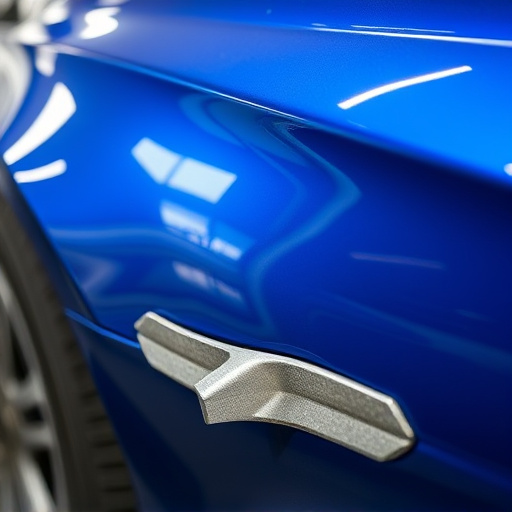
Rare cars, with their unique designs and specialized components, present distinct challenges for collision repair specialists. Unlike more common vehicle models, rare cars often lack readily available replacement parts, which can delay repairs and require innovative solutions from skilled technicians. These specialists must possess a deep understanding of intricate auto frame repair techniques and the latest advancements in dent removal technology to preserve the car’s original aesthetic and value.
The process of repairing a rare car demands meticulous attention to detail and a comprehensive knowledge base. Rare car collision specialists need to be adept at diagnosing complex issues, sourcing specialized parts, and performing precise auto frame repair while minimizing alteration to the vehicle’s original design elements. Their expertise ensures that these valuable and often historic vehicles are restored to their former glory, preserving their distinctive character for future generations.
Essential Environmental Controls for Specialized Facilities

In the realm of rare car collision repair, where precision and expertise are paramount, specialized facilities employ a suite of essential environmental controls to ensure optimal conditions for both the vehicles and the skilled artisans at work. These controls go beyond basic climate regulation; they include sophisticated air filtration systems to minimize dust and debris, crucial for protecting delicate auto detailing and intricate car body restoration processes.
The specialized nature of rare car collision specialists demands a controlled environment to accommodate various materials and techniques used in car body repair. This includes advanced noise reduction measures to create a calm, focused workspace, enhancing the accuracy of repairs, particularly in fine detail work. Furthermore, these facilities often incorporate specialized lighting solutions to accurately match original finishes during auto detailing processes, ensuring that every aspect of the collision repair, from structural integrity to cosmetic enhancement, meets the highest standards.
Implementing Sustainable Practices in Rare Car Collision Centers
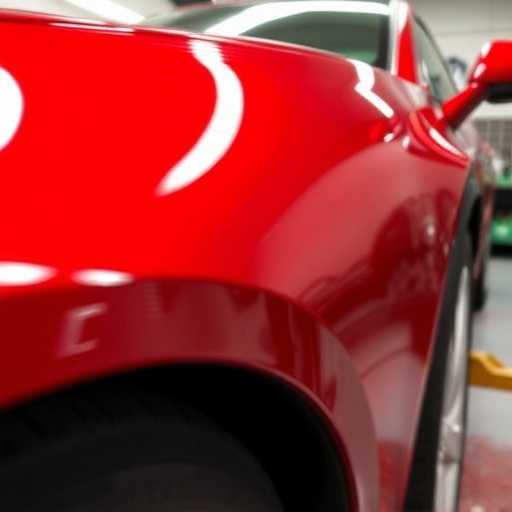
Many rare car collision specialists are increasingly recognizing the importance of integrating sustainable practices into their operations. By adopting eco-friendly measures, these auto body shops can minimize their environmental footprint while contributing to a greener industry. One key aspect is the use of environmentally friendly materials and chemicals in auto dent repair processes, reducing the release of harmful substances into the atmosphere.
Additionally, rare car collision specialists are exploring innovative ways to reuse and recycle components from damaged vehicles. This not only conserves resources but also reduces waste in car bodywork, aligning with global sustainability goals. Embracing these sustainable practices not only benefits the environment but can also enhance the reputation of these facilities among environmentally conscious consumers, setting them apart in a competitive market.
Rare car collision repair facilities face distinct challenges due to the specialized nature of their work. Implementing robust environmental controls is essential for maintaining a safe, efficient, and sustainable workspace. By adopting sustainable practices, these specialists can minimize their ecological footprint while ensuring optimal conditions for intricate repairs. This holistic approach not only benefits the environment but also enhances the reputation of rare car collision experts as leaders in both automotive restoration and eco-conscious operations.
